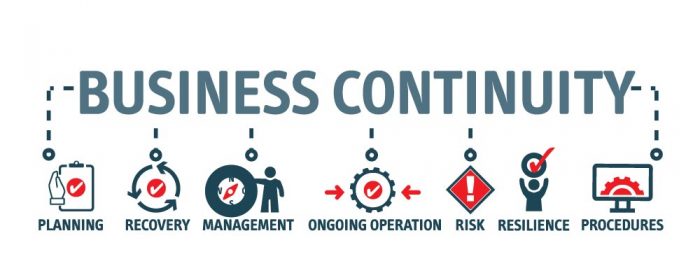Business continuity planning can help startups protect their brand image, secure data, mitigate disaster-related effects, plan for financial security and uphold customer trust and compliance obligations.
Establishing a plan may seem like a daunting task for startups, but it is necessary to prepare for every possible outcome.
Identify Your Critical Functions
At the forefront of business continuity planning lies identifying which areas would be most affected in an emergency – this process is known as risk assessment or business impact analysis and its results should inform recovery strategies and coverage options in case of emergencies.
Next, it is necessary to classify your critical functions based on their impact on your company if they were no longer available. These might include your website, credit card processing, and shipping; prioritize them in your plan accordingly and establish backup plans – otherwise customers might not be able to place orders or receive goods, and reputation will suffer greatly.
Once you have an inventory of critical functions, it is time to develop your plan. A business continuity plan enumerates every aspect of running your business during an emergency, from how to keep the lights on to keeping employees working during this type of crisis. Completing it may take two months and will need to be revised frequently in response to new circumstances; furthermore, testing it in real-life crisis simulation is highly advised to gain an idea for its efficacy.
Invest in a Continuity Solution
Business continuity plans go beyond simply listing essential tasks to be performed during an emergency; they also involve identifying and mitigating risk. For instance, startups that heavily depend on technology should consider ways of keeping vital systems operational after disaster strikes; every second of website downtime costs online retailers 7% in conversions alone!
An effective BCP will identify who handles which tasks and highlight any time-sensitive activities that must be completed quickly. It’s crucial that this plan be reviewed and tested periodically in order to remain relevant, while at the same time responding to any new threats that have emerged.
Establishing a Business Continuity Plan can be an eye-opening experience for startups, as it forces them to consider the consequences of not being prepared in case of an emergency. From natural disasters and cyber attacks to unexpected costs, no one knows what lies in store in the future – by taking steps now to create their BCP, businesses can reduce exposure while being ready for whatever may come their way.
Business continuity planning isn’t just a good idea — it’s essential. Discover how it can work for your organization by downloading our free whitepaper on this topic. Plus, become a member today to save on virtual mailboxes and more.
Communicate Your Plan to Your Employees
As startup culture can often put employees in an anxious state, it’s essential that their minds stay on the task of planning for success. A business continuity plan is an excellent way to do this: It ensures all employees have access to tools needed for working outside the office whether physically or remotely as well as helping them understand their roles and responsibilities during any emergency or disaster scenario.
Spend time reviewing and testing the business continuity plan with your team, creating a checklist. This will enable you to detect any possible errors or flaws and test its functionality; ideally, this process should occur twice annually to make sure that everything remains relevant and up-to-date.
Implementing an effective business continuity plan is vital to any startup’s survival. Not only will it protect against losses in case of an emergency, but it will also keep employees motivated and productive. Even well-crafted plans may falter without proper execution; RingCentral makes it simple to collaborate with your team and quickly get projects back on track if necessary – we recommend trying our RingCentral Collaborate tool so everyone is on the same page and prepared for emergencies!
Invest in Financial Planning
Business continuity planning (BCP) helps startups manage risk and enhance financial management. A BCP will reduce downtime incurred by networks and technology, saving both money and downtime costs in the long run. Furthermore, having one will prevent disruptions from spreading further while organizing a team to address disaster response plans effectively. In addition, having a BCP in place helps minimize losses by informing employees what their responsibilities are during an emergency situation.
However, it’s essential to keep in mind that a BCP should not replace an insurance plan. While it might seem intuitive at first, many think an insurance policy suffices as a BCP and this could create unnecessary confusion and disagreement in an emergency situation. A true BCP includes procedures for both recovery and mitigation – such as equity funding from investors or loans from banks – along with contingency plans that outline how your startup will face unexpected financial hurdles or market fluctuations.
Start-up businesses must conduct an in-depth evaluation of their financial status and risks to create an effective budget, make informed decisions about resource allocation, expansion opportunities and strategic direction as well as more accurately predict cash flows and devise contingency plans in case unexpected challenges arise.

